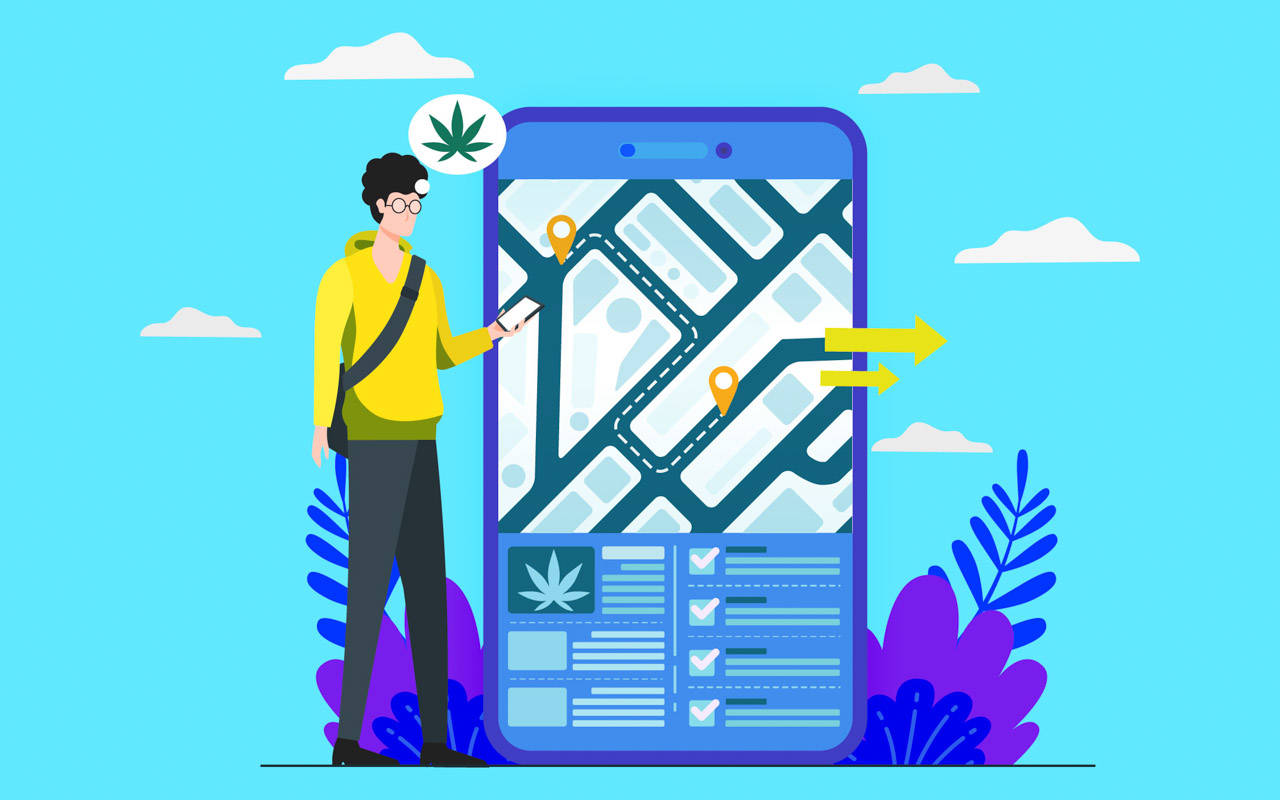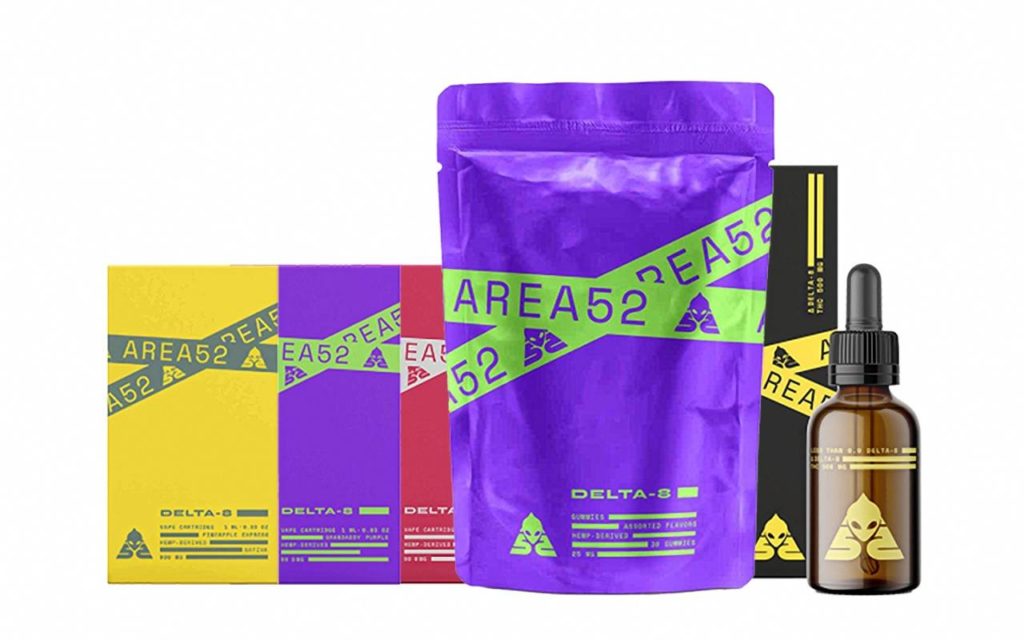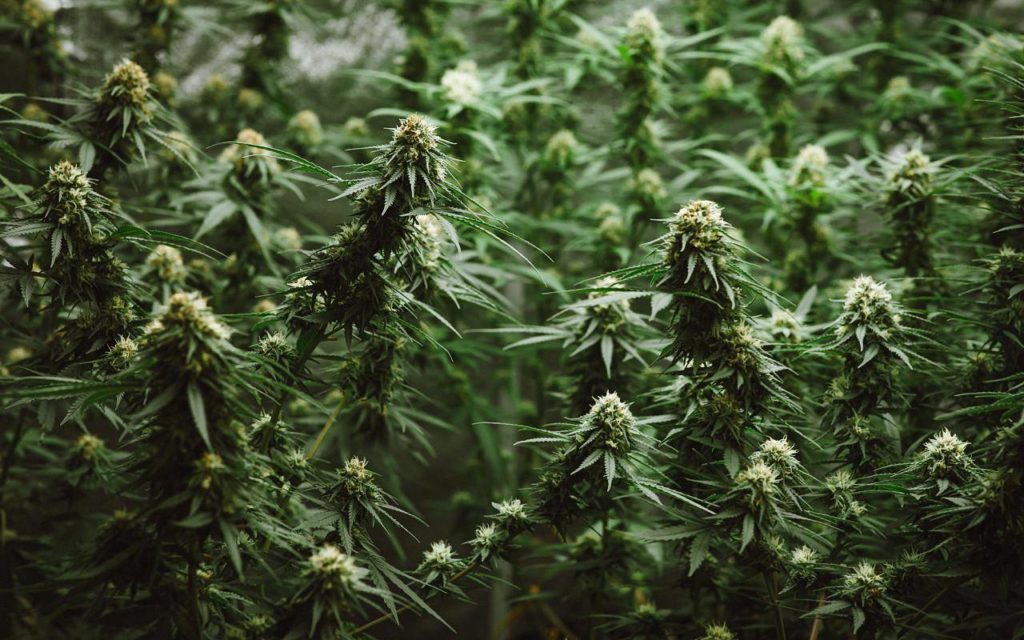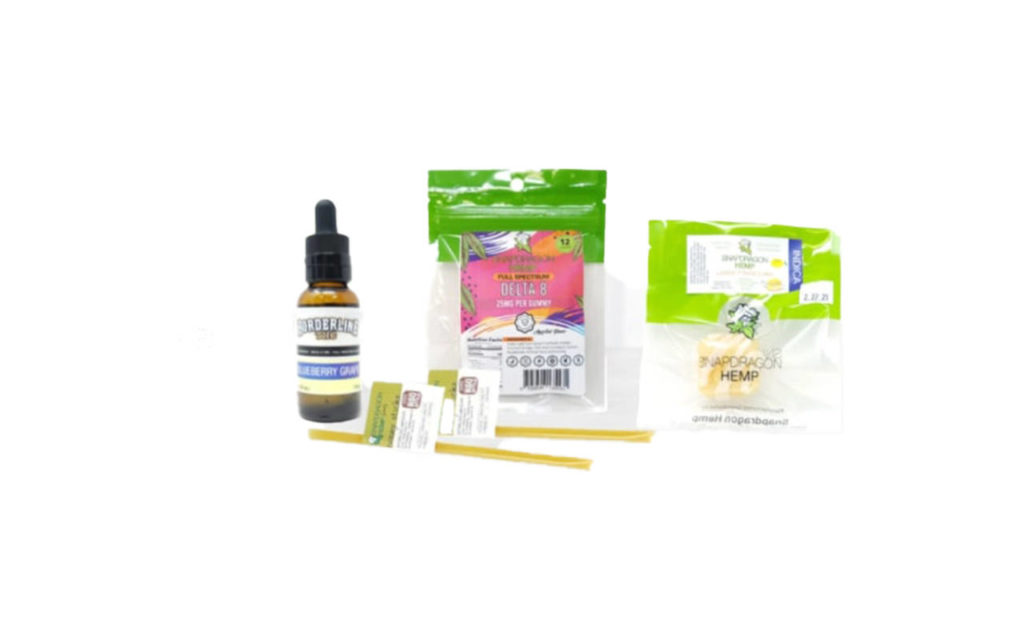It can be challenging to find a credible dispensary, especially with so many vendors selling cannabis products. The need for suppliers keeps increasing as states begin to legalize weed.
However, many places rush production as they try to make money, resulting in low-quality or unsafe products.
You’ll want a reputable source, whether you’re using it for medical or recreational purposes.
We’ll tell you everything you need to know about buying weed through a dispensary and help you stay on the right side of the law.
Best Marijuana Dispensaries Near Me: What Are the Options?
Some states have legalized weed for medicinal and recreational purposes. Medical marijuana can only be bought with a medical card and only through government-approved shops. Many dispensaries in these states will deliver your order or allow you to pick it up but cannot mail weed because of federal laws.
Despite dispensaries becoming more common, some people still buy weed through a dealer, thinking the prices are better or that it’s their only option. Unfortunately, these products are unregulated and can contain chemicals and fillers, be of poor quality, and get you in trouble.
To stay safe, we recommend buying weed through a dispensary. This way, you’ll know that each product follows regulations.
What if weed isn’t legal in your state? Delta 8 THC is a popular alternative, providing health benefits and a “high” similar to weed, yet legal in most places.
Dispensaries vs. Dealers
Even without the legal issues, there are two main reasons to avoid buying through a dealer: safety and price.
Dealers rarely grow their weed. Instead, they buy these products from suppliers and resell them. This makes it hard for dealers to assure you of the weed’s purity, cultivation method, and harvesting process. As a result, their weed lacks quality and consistency, with price and availability based on supply and demand. What you pay one day may be much less than what you spend the next day — if your dealer even has it.
On the other hand, good dispensaries only sell products tested for strength and purity and are compliant with local laws. With delta 8 THC legal in most states, no one needs to buy weed through the black market. It’s easy to find quality weed at a reasonable price without breaking the law.
Can You Legally Buy Weed Online?
There are many online vendors, but they cannot deliver weed if you live out of state. Delta 8 THC is legal federally in most states, and therefore can be shipped almost anywhere. Buying online rather than locally can be a convenient and safe way to purchase cannabis products when you take the necessary precautions.
Delta 9 THC vs. Delta 8 THC
Because it’s relatively new, plenty of confusion surrounds delta 8 THC. Many people don’t know how it’s different from weed. To understand delta 8 THC better, we need to look at the cannabis plant and how it affects our bodies.
Cannabis & Its Effects
Hemp and marijuana are commonly called cannabis and come from the same species of plant. However, THC levels divide the two, allowing one to be a popular health product while the other is a felony.
Cannabis plants contain hundreds of compounds called cannabinoids. These compounds interact with receptors in our endocannabinoid system (ECS). Two major cannabinoids are CBD and THC. Minor cannabinoids, including delta 8 THC, are found in smaller amounts.
The ECS is complex and acts as a regulator, keeping everything in balance. It’s spread throughout the body and influences almost everything, from our immune system to mood [2].
There are two primary cannabinoid receptors, CB1 and CB2, in the ECS. Each cannabinoid interacts with these receptors in different ways [3].
Delta 9 THC creates a bond with both receptors, but the “high” you feel comes from its affinity for the CB1 receptor. Studies aren’t clear, but CBD doesn’t seem to bond to either receptor. Instead, experts think it either blocks the receptors or stops endocannabinoids from breaking down.
Delta 8 THC works similarly to delta 9 THC and bonds to both receptors but has an affinity for CB2. Because of this bond, delta 8 THC might serve as a “middle ground” and offer THC users an alternative.
Comparing the Benefits of Delta 8 & Delta 9 THC
Delta 9 THC and delta 8 THC share many of the same benefits and drawbacks, but there are differences to consider beyond legality. Here we’ll look at their similarities and break down how they differ.
1. Health Benefits
Unfortunately, experts don’t know the full extent of delta 8 THC’s capabilities. More research is needed, but it does seem to help alleviate many of the symptoms treatable by delta 9 THC.
The benefits of delta 8 & delta 9 THC may include:
- Stimulate appetite
- Reduce inflammation
- Reduce pain, including chronic pain
- Prevent nausea and vomiting
- Promote brain health [4]
Still, it’s easy to wonder if Delta 8 THC is worth it, especially for those only wanting the possible health benefits.
Why bother when CBD is easy to buy and legal everywhere?
CBD can play a vital role in managing your health, but some scientists believe there are additional benefits when cannabinoids and terpenes are combined [1].
This is called the “entourage effect” and implies that the whole cannabis plant works better than isolated parts. Combining CBD and delta 8 THC could provide advantages that CBD alone can’t deliver.
2. Ease Withdrawal Symptoms
Illegal opioids and prescription painkillers have created a national crisis with their high addiction rates. Recovery is difficult, and there’s a high chance of relapse. In addition, severe withdrawal symptoms often stall or stop the progress made during treatment.
Delta 9 THC, delta 8 THC, and CBD can help alleviate withdrawal symptoms such as muscle aches, pain, agitation, anxiety, nausea, stomach upset, tachycardia, rhinorrhea, and chills [5]. This relief can give addicts a greater chance at recovery.
3. Both Cause a “High”
This is where delta 8 THC stands out. While both can give you a “high,” delta 9 THC’s “high” is more potent and can cause anxiety and paranoia. Delta 8 THC gives a more mellow “high” and is often described as “clear-headed,” making users feel euphoric and energized.
Comparing the Negatives of Delta 8 & Delta 9 THC
Just as delta 8 THC and delta 9 THC share many of the same benefits, they also share a few negatives. Though minimal, it’s important to be aware of them.
1. Side Effects
Side effects are minimal for both delta 9 and delta 8 THC. Red eyes, short-term memory loss, and dry mouth are common but more nuisance than threats. However, delta 9 THC can also cause anxiety and paranoia in some users.
2. Drug Tests
Drug tests are a top concern for many people. Even though most tests look for delta 9 THC, there is a good chance that delta 8 THC will result in a failed drug test. This is because products like delta 8 THC and CBD contain small amounts of delta 9 THC, sometimes more than what’s legal, and can show up on drug tests.
3. Legal Issues
Delta 8 THC may be legal in your state, but it could still cause problems with the law. The consequences for failing a drug test, driving under the influence, or having what appears to be an illegal substance might not be worth it. As with other medications, proper use and responsible behavior can help avoid any issues.
Delta 9 THC is illegal federally and in many states. Its use can get you into trouble even if you live in a state that legalized it.
Best Delta 8 THC Vendors
If you’re looking for the best places to buy delta 8 THC, here are popular companies that are reputable and provide their customers with high-quality products.
1. Area 52
Area 52 has years of experience and award-winning delta 8 THC products (given by Observer). It believes cannabis can play an important role in individual growth, development, and self-care. Its focus is on providing a good experience, so you know each product is potent. Area 52 creates its products with a delta 8 THC distillate & a blend of hemp-derived terpenes for added flavor and entourage effect.
2. Finest Labs
Finest Labs focuses on sustainability, efficacy, integrity, and vigorous quality control. It combines ancient wisdom with AI optimization and state-of-the-art extraction equipment. Its unique blends and purified isolates have no synthetic additives.
This brand is one of the best on the market in terms of price to potency ratio.
3. Charmed Hemp
Charmed Hemp is Baltimore-based and specializes in all-natural hemp products. Many products come in fun flavors like Cali Orange, Kush, Grand Daddy Purple, and Strawberry Cough. The only issue with this brand is inconsistencies with third-party testing.
4. SnapDragon Hemp
SnapDragon is Tennessee-based. This company offers an extensive range of vape products — some using natural flavors, others with synthetic additives.
5. Apotheca
Apotheca is an online store for natural medications but also offers educational information for its products. Its goal is to support individuals wanting to live a healthier lifestyle. The brands they sell must provide full test documentation proving efficacy and quality.
Delta 8 THC Near Me: Why Choose Online Vendors
You’ve done your research, and you’re ready to try delta 8 THC. What’s next? You have two choices: buy near you or online. There are benefits and drawbacks to both, but ensure the source is reputable whatever route you choose.
Delta 8 THC is primarily unregulated, so there are no set standards. Many companies have poor-quality products that are contaminated or less potent than advertised. How can you be sure you’re getting a good product?
To learn more about the different types of Delta 8 products, don’t hesitate to read our in-depth reviews of:
What to Look For When Making a Purchase
There are specific things to look for when buying delta 8 THC. These details can help you get a product that is good quality and legal.
- Source: Legally, you need to buy delta 8 THC extracted from hemp. Cannabis draws up substances in its environment when growing, so choose organically grown hemp products when possible.
- Extraction method: CO2 extraction pulls delta 8 THC without heat or solvents.
- Brand reputation: Many reputable CBD companies are now producing delta 8 THC. Check a company’s authenticity with third-party reviews, lab reports, and expert blogs.
- Third-party testing: Companies can send product samples to third-party labs for analysis. These tests provide a content analysis and check for potency and contaminants. A certificate of analysis (COA) is available if the product passes.
Local vs. Online Dispensaries
Local dispensaries are becoming more common and can make purchasing quick and easy. Instead of waiting for delivery, you can see the products in person and walk out with what you need. Unfortunately, there are drawbacks when buying through local vendors. Often it acts as the middleman, making prices higher. In addition, these dispensaries carry a limited selection, and the products could be less potent and low-quality.
Online vendors are usually more transparent, leaving their test results and reviews easy to access. Many of these businesses have years of experience, third-party testing, a wide selection to choose from, and proven reliability. Specific product information is readily available, helping you decide which cannabis product best suits your needs. Purchasing directly from the source gives you better prices and helps prevent any middleman from jeopardizing the product’s quality. Buying online also gives you the chance to shop around from the comfort of home.
Key Takeaways On Delta 8 THC
Excitement is growing over delta 8 THC and with good reason. People now have legal access to the health benefits of THC, with fewer side effects. It’s easy to buy, simple to use, and can help relieve a variety of symptoms. Experts now see the need to study its impact and the possible benefits of using it. Even without the research, you can try delta 8 THC with relatively little risk. With proper precautions, it can be a helpful supplement for pain and health management.
References
- Ferber, S. G., Namdar, D., Hen-Shoval, D., Eger, G., Koltai, H., Shoval, G., … & Weller, A. (2020). The “entourage effect”: terpenes coupled with cannabinoids for the treatment of mood disorders and anxiety disorders. Current neuropharmacology, 18(2), 87-96.
- Sallaberry, C. A., & Astern, L. (2018). The endocannabinoid system, our universal regulator. Journal of Young Investigators, 34(6).
- Pertwee, R. G. (2008). The diverse CB1 and CB2 receptor pharmacology of three plant cannabinoids: Δ9‐tetrahydrocannabinol, cannabidiol and Δ9‐tetrahydrocannabivarin. British journal of pharmacology, 153(2), 199-215.
- Tripathi, H. L., Vocci, F. J., Brase, D. A., & Dewey, W. L. (1987). Effects of cannabinoids on levels of acetylcholine and choline and on turnover rate of acetylcholine in various regions of the mouse brain. Alcohol and drug research, 7(5-6), 525-532.
- Wiese, B., & Wilson-Poe, A. R. (2018). Emerging evidence for cannabis’ role in opioid use disorder. Cannabis and cannabinoid research, 3(1), 179-189.
































